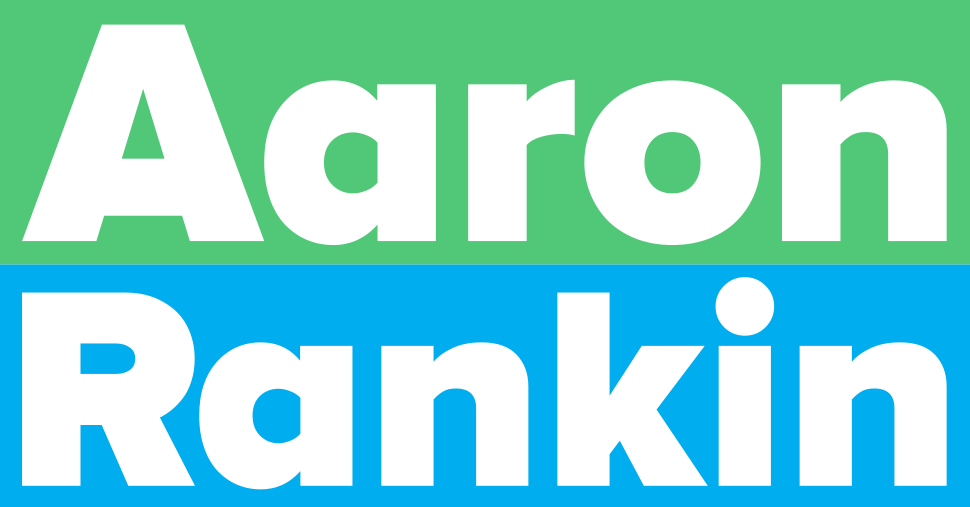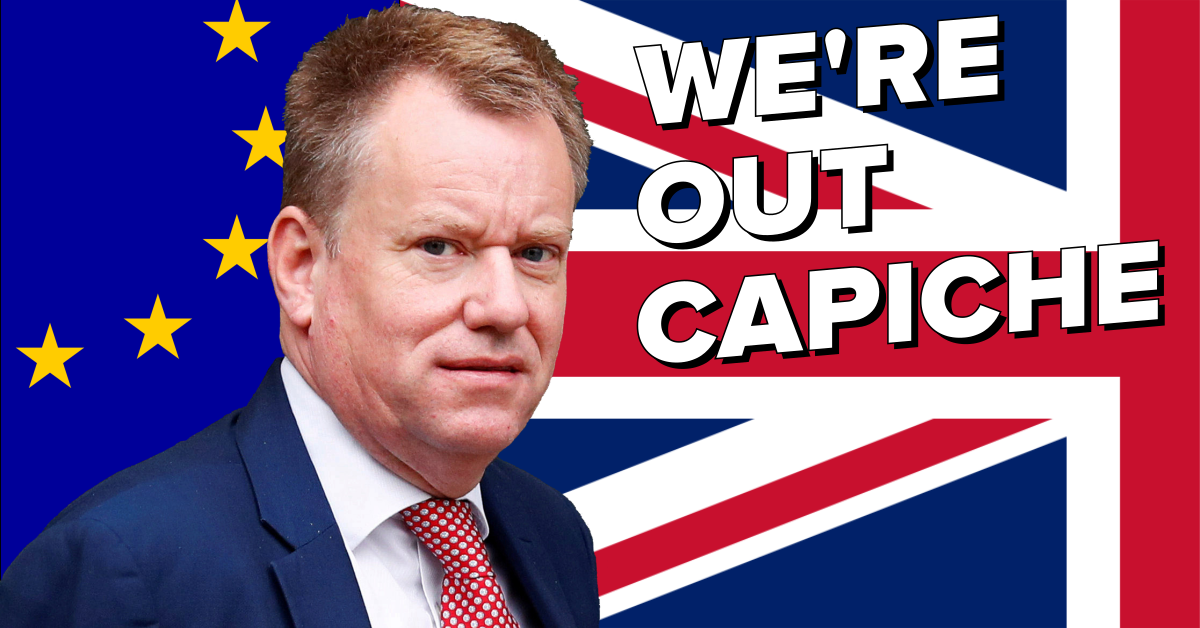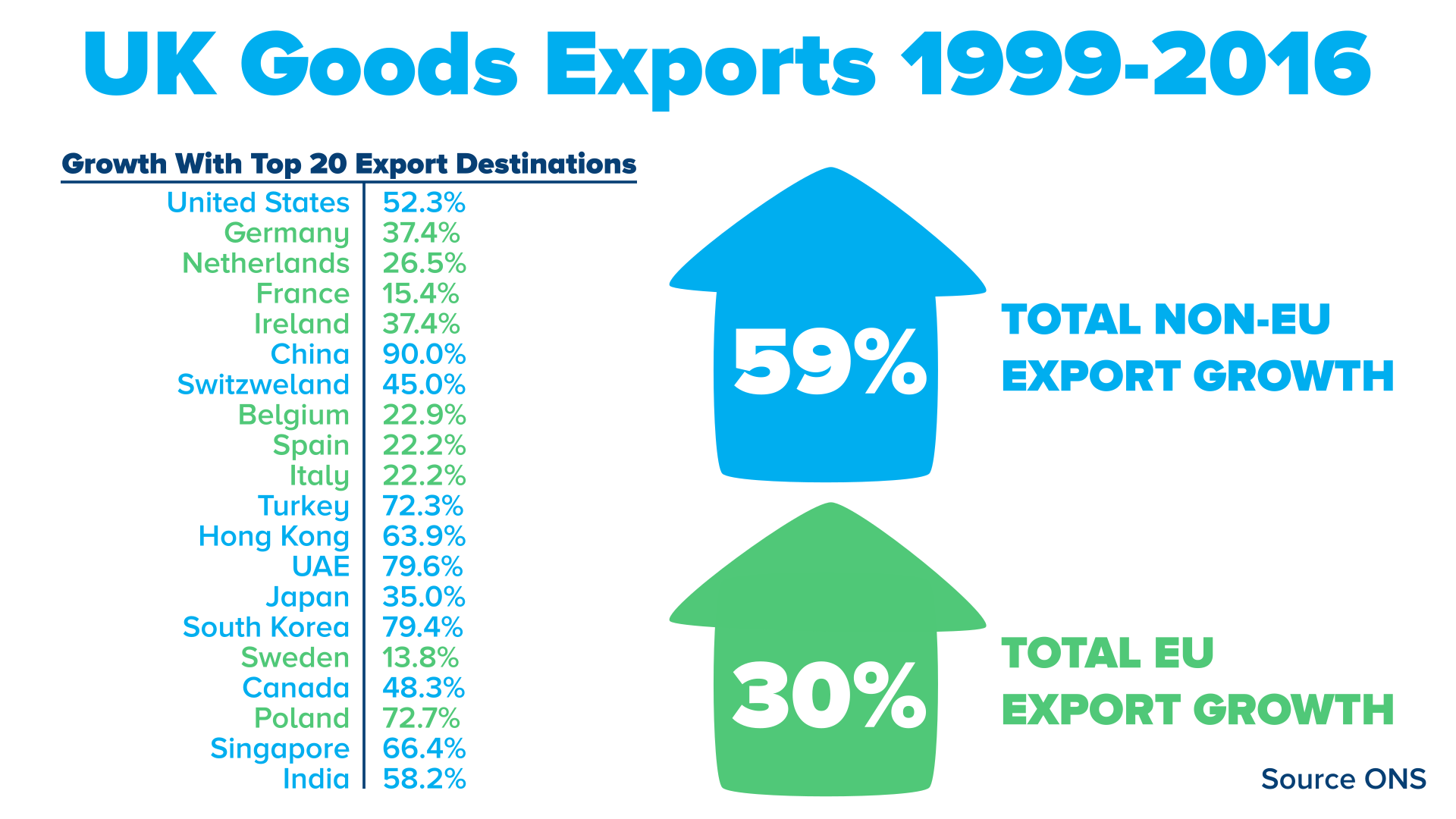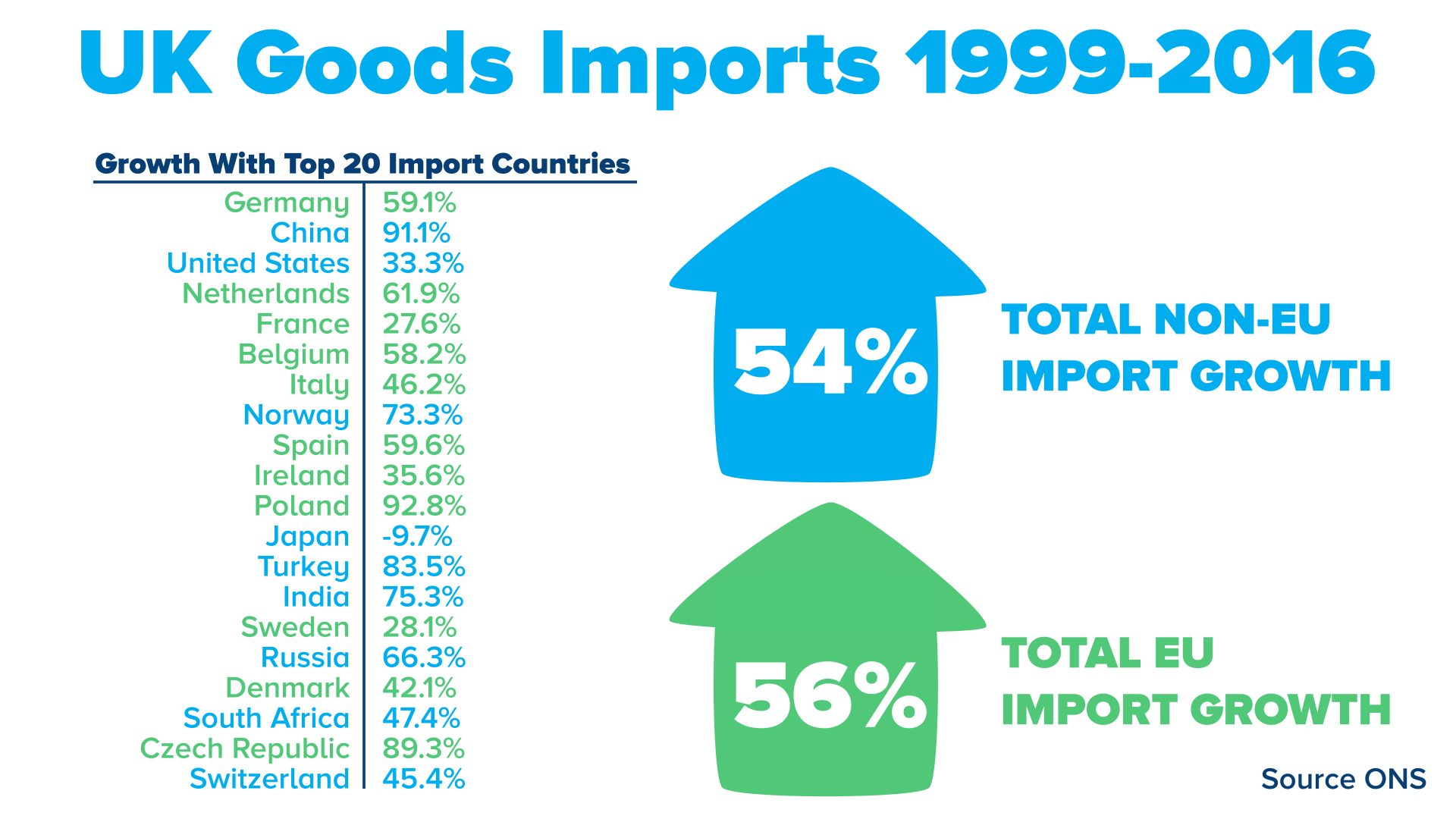


24th February 2020
Last week the UK’s Chief Negotiator for the EU trade talks, David Frost, gave a lecture in Brussels outlining the government’s approach going forward. He sought to give not just an economic rationale but also try to explain the philosophical foundations of the UK’s outlook. The importance of this cannot be underestimated as there are many across The Channel that still seem to view the Brexit saga as some sort of adolescent phase that, after time and their good guidance, we will snap out of eventually.
Mr Frost was very kind to the EU as an institution, having been a former admirer of it, however he was very clear as to why it had fallen out of favour in the UK. “[The EU institutions] were more abstract, they were more technocratic, they were more disconnected from or indeed actively hostile to national feeling” he said, and in a country like ours where the systems that govern us have grown over centuries the relatively new creation of the EU “was always going to feel a bit unnatural”. As he went on the key driving principle for the UK became clear, that sovereignty is king and that it “isn’t a simple negotiating position which might move under pressure – it is the point of the whole project”.
On trade Mr Frost made clear that the UK is only seeking a free trade agreement along the lines of EU-Canada accord and that the “we understand the trade-offs involved – people sometimes say we don’t but we do”. He was confident in this believing that a lot of the gloomy predictions on the impact of trade frictions and non-tariff barriers that would result from such an outcome were greatly exaggerated.


The evidence would suggest this, between 1999 to 2016 the UK’s goods exports to countries outside the EU increased 59% compared to only 29% for the EU. In the same period goods imports from the EU and the rest of the world increased at a roughly equal rate (56% and 54% respectively). As for services exports, a large driver of the UK economy and more adversely affected by non-tariff barriers, they showed slightly faster growth in Non-EU markets increasing by 70% but only increasing 65% for EU markets. Even looking individually at the UK’s top 20 import and export markets the growth was consistently higher for the Non-EU countries.
If trade frictions had the impact that the pessimistic forecasters claim then we’d expect to see significantly depressed growth in our Non-EU trade, the trade that would attract all the friction. In reality the impact appears to be limited to non-existent. Looking elsewhere we can see how frictionless trade isn’t the killer economic determinant that is it made out to be. Italy, France and Spain have a much larger proportion of their trade with the EU countries and have seen lower GDP growth than the UK, it’s how you actually run your economy that makes the difference.
To that end Mr Frost went on to say how important it was for the UK to be able to set its own regulations after the transition period rather than sign up to the all encompassing interpretation of a Level Playing Field that emanates from the European Commission. Not only was the right to be able to do such a thing a key tenet of sovereignty but that it was “perfectly possible to have high standards, and indeed similar or better standards to those prevailing in the EU, without our laws and regulations necessarily doing exactly the same thing”. The UK has stated that it will maintain high standards in all the areas the EU seeks to control and already plans to exceed some of them with the coming ban on live animal exports.
That the EU doesn’t seem to trust the UK to set its own environmental and social policy is insulting, as if their benign influence is the only thing stopping us sending children up chimneys again. In practice however the UK already goes above and beyond many EU minimums like with maternity pay for instance and even has laws predating EU mandates such as the Equal Pay Act 1970. The fact that such wide ranging oversight is set as a precondition for a trade deal grates even further when you consider that the EU has no problem signing an FTA with Vietnam, a country where one could have justified reservations about environmental practices, workers rights and civil liberties. Free of the EU the UK will not be engaged in a race to the bottom but rather the reverse and in a way that will be tailored to fit our economy.
On matters closer to home Mr Frost highlighted another focus of the government saying “We cannot be complacent about the Union in the UK, but I nevertheless believe that all parts of the UK are going to survive and thrive together as one country. In particular I am clear that I am negotiating on behalf of Northern Ireland as for every other part of the UK”. This is of particular importance as there is currently a difference if interpretation over the exact nature of the Northern Ireland Protocol in the Withdrawal Agreement.
The Protocol itself basically amounts to a customs transit arrangement for goods heading to the Republic of Ireland via Northern Ireland and recently there appeared to be concordance on this between London and Brussels. However over recent weeks the EU view appears to have shifted as if they are trying to make out that they achieved their original objective of a Northern Ireland only backstop, effective annexation of the Province to protect the Single Market from customs and goods leakage.
This indication that the government plans to stand firm for the country as a whole will be very much welcomed by Unionists here in Northern Ireland, many of whom have been concerned that The Protocol amounts to a “Border in the Irish Sea”. This situation hasn’t been helped by the DUP who cynically exploited this fear for electoral purposes where “betrayal” was their literal rallying cry. However a specific and deliberate mention of this nature will go a long way to easing anxiety around this issue and it’s important this is followed through on.
At the end of the day the UK isn’t asking a great deal in the upcoming trade talks, we only want what the EU has given to others. We want to be treated just like any other country in the world that has dealings with the EU and not just for our sake, as Mr Frost said in his speech “the EU must, if it is to achieve what it wants in the world, find a way of relating to its neighbours as friends and genuinely sovereign equals”.
Is wanting to be treated as equals really that much to ask for?